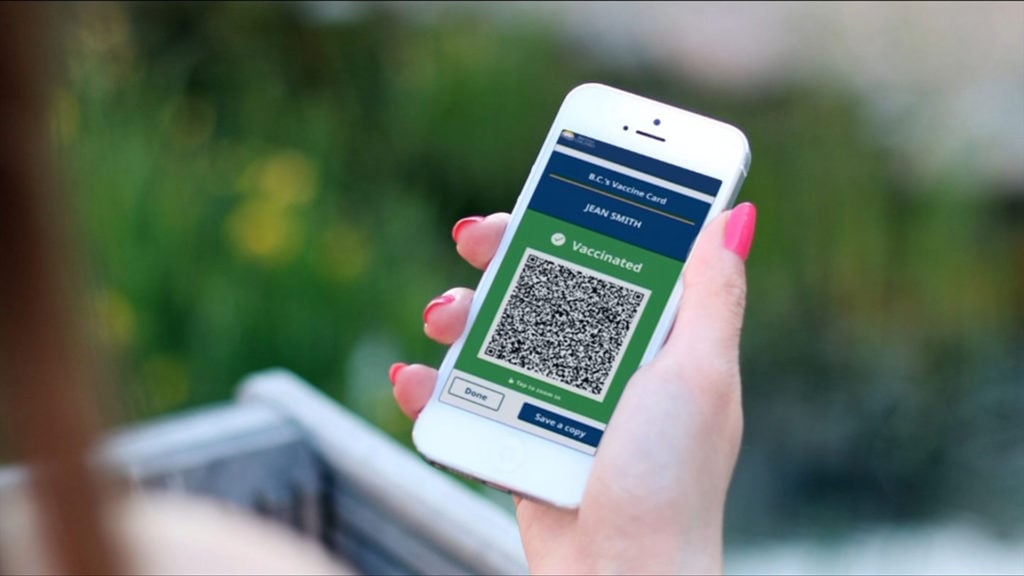
Health officials announced Tuesday that B.C. will begin offering fourth doses or “second boosters” to individuals over 70 people later this spring.
The province also announced the B.C. vaccine card will officially end on April 8, as will the post-secondary residence vaccination requirement. Furthermore, businesses will also be able to transition from a COVID-19 safety plan to a communicable disease plan.
Dr. Bonnie Henry, the provincial health officer, said during a press conference Tuesday that fourth doses will be available to residents of long-term care and assisted living regardless of their age. It will also be available for community seniors 70 and older as well as Indigenous individuals 55 and above. Immunocompromised individuals will also be eligible.
“The fourth dose will be at about six months from your first booster dose or dose three,” said Henry.
The National Advisory Committee on Immunization has recommended a fourth dose for those who are more likely to be hospitalized for COVID-19.
One of the reasons for the move to a fourth dose is that hospitalization rates among vaccinated individuals over 70 have increased in recent weeks. Those 80 and older who had two or three doses of vaccine had the highest rates of hospitalization between Jan. 7 and March 22, according to data from the province.
“We know that the older we are the sooner that the anti-bodies wane,” said Henry, adding. “An extra booster dose right now will provide a rapid increase in anti-bodies and will provide that spring protection.”
The 80 and older age group was first offered their third dose of vaccine back in October, well ahead of the majority of the population. Henry explained that while the booster or third dose has provided them with good protection, it is starting to wane.
“It does give good strong protection,” Henry said of the third dose. “But we are seeing some waning of that protection in the last few weeks, and particularly in people over age 80 in our communities with that booster dose, still have a risk that is higher than every other age group except young people who are unvaccinated.”
B.C.’s top doctor also noted that there has been an uptick in new infections across the province. She said the even more transmissible Omicron subvariant, known as BA.2, accounts for the overwhelming majority of new infections in the province.
“We have had predominately the BA.1, and then we had a subset called the BA.1.1 and now about 70 to 75 per cent of our cases are BA.2,” Henry said. “That is important because that does help us understand why we are seeing a slight uptick in cases.”
However, Henry also said while the coronavirus pandemic is not over and B.C. could very well be hit with future variants and waves, we also need to learn to live with the virus.
“It is important to recognize that we are transitioning from these broad societal orders where we needed these measures all the time, but it is not all or nothing. We need to learn to live with COVID-19 better to make sure that we continue our good habits that protect us.”
The dropping of restrictions comes following weeks of protests — which still continue — at the B.C. Legislature and elsewhere on Vancouver Island demanding an end to all coronavirus restrictions, particularly the vaccine card. Henry said the vaccine card was one measure designed to encourage people to get vaccinated and for the most part, did its job.
“It was quite effective in that. On other hand, there are some downsides to the B.C. vaccine card,” she said without expanding further.
Meanwhile, Sonia Furstenau, Leader of the B.C. Greens and MLA for Cowichan Valley, said in a statement distributed to the media that the provincial government has failed to protect British Columbians from the risks associated with long COVID-19.
“Once again, the Provincial Health Officer and the BC NDP have failed to educate British Columbians on the risks of long COVID, of the airborne spread of this virus, and of the benefits of well-fitting and high-quality masks. This is a failure to provide essential information to the public, at a time when this government has transferred all responsibility to individuals to try to keep themselves and others safe from COVID infection,” she said.
A previous version of this story appears below
British Columbia health officials are set to give their first live COVID-19 update in over a month on Tuesday and are expected to provide an update on the province’s plans for the B.C. vaccine card and a possible fourth COVID-19 vaccine dose.
The live briefing with Dr. Bonnie Henry and Health Minister Adrian Dix is scheduled for 1 p.m. A live stream will be available on this page as well as the CHEK+ app.
Health Minister Dix says the possibility of a second booster dose is on the agenda for today’s COVID-19 briefing with provincial health officer Dr. Henry.
Last week, Dix said the ministry was thinking about providing a fourth dose to people who are clinically vulnerable, such as those in long-term care.
On Monday, Dix said the government would like more people to get their third COVID-19 shot as the current numbers show almost 58 per cent of eligible people 12 and older have received their booster.
Henry announced last month that as of April 8, B.C.’s vaccine card will no longer be needed to access restaurants and other venues, while businesses can shift away from their COVID-19 safety plans.
The Health Ministry said there are 321 people in hospital with COVID-19 and 36 of those are in intensive care, which is up from Friday when there were 274 people in hospital.
With files from The Canadian Press




